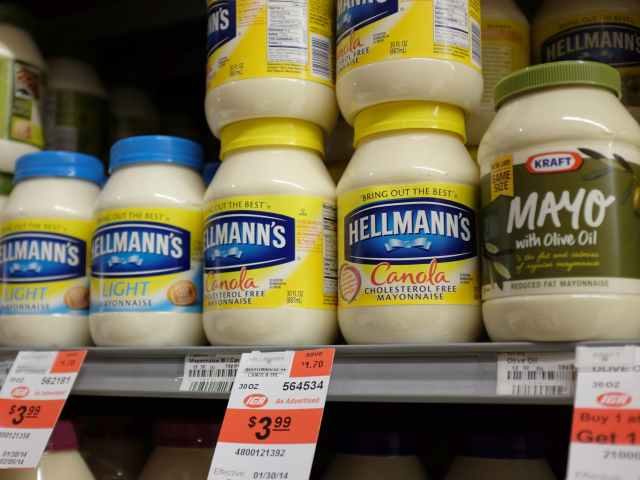A journalist from Philadelphia Magazine wrote a bizarre column this week arguing that millennials killed mayonnaise.
Philadelphia Magazine columnist Sandy Hingston published an unusual piece about “identity condiments” over the weekend. In the piece, Hingston bemoans the new generation that isn’t as interested in bringing mayonnaise to family picnics.
I racked my brain for the source of this generational disconnect. And then, one holiday weekend, while surveying the condiments set out at a family burger bash, I found it. On offer were four different kinds of mustard, three ketchups (one made from, I kid you not, bananas), seven sorts of salsa, kimchi, wasabi, relishes of every ilk and hue …
What was missing, though, was the common foundation of all Mom’s picnic foods: mayonnaise. While I wasn’t watching, mayo’s day had come and gone. It’s too basic for contemporary tastes — pale and insipid and not nearly exotic enough for our era of globalization. Good ol’ mayo has become the Taylor Swift of condiments.
In another paragraph, the author praises her son, claiming that he is one of few millennials that still appreciates mayonnaise. She then uses her daughter, a women’s and gender studies program graduate, as the example of the standard millennial who rejects the once-popular condiment.
My son Jake, who’s 25, eats mayo. He’s a practical young man who works in computers and adores macaroni salad. He’s a good son. I also have a daughter. She was a women’s and gender studies major in college. Naturally, she loathes mayonnaise. And she’s not alone. Ask the young people you know their opinion of mayo, and you’ll be shocked by the depths of their emotion. Oh, there’s the occasional outlier, like Jake. But for the most part, today’s youth would sooner get their news from an actual paper newspaper than ingest mayonnaise.
Many people on social media have questioned why this column was published in the first place. Others praised millennials for their alleged part in mayonnaise’s decline.
Despite the strange piece, Hingston isn’t wrong about one thing. Mayonnaise sales fell 6.7 percent between 2012 and 2017.
Correction — This story incorrectly attributed the story to the Philadelphia Inquirer instead of Philadelphia Magazine. The headline and text have been updated.

COMMENTS
Please let us know if you're having issues with commenting.